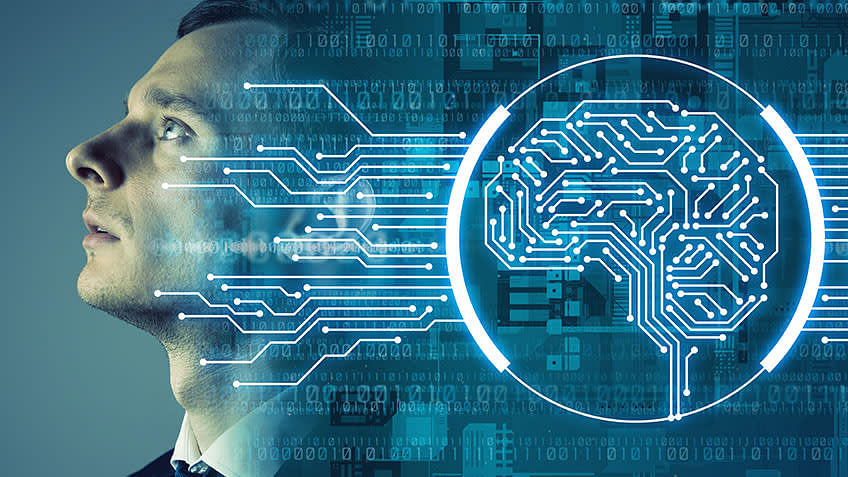Intelligent Agents in Social Media
Imagine a social media feed that knows exactly what you want to see before you do. That’s the power of intelligent agents, which are transforming how we interact online. These AI-powered helpers are making social media smarter and more personalized than ever before.
Intelligent agents are like digital assistants that work behind the scenes on social media platforms. They use artificial intelligence to study user behavior, determine preferences, and create better experiences. For example, an intelligent agent might notice you always watch cat videos, so it shows you more feline content in your feed.
These agents are changing the game for both users and the tech experts who build social media platforms. They make decisions based on data, not guesswork. This means you’re more likely to see posts you care about and less of the stuff you don’t.
This article explores how intelligent agents work their magic on social media. We’ll delve into their inner workings, the different types of intelligence they use, and the innovative features they offer. Whether you’re scrolling through posts or building the next big social app, understanding these AI helpers is key to maximizing your social media experience.
The Role of AI in Social Media Platforms


AI-driven intelligent agents have become the unsung heroes of our social media experiences, working tirelessly behind the scenes to shape our digital interactions. These sophisticated systems are far more than just fancy algorithms – they are the guardians, curators, and analysts of the vast ocean of content we navigate daily.
Take content moderation, for example. Gone are the days when human moderators had to sift through every questionable post manually. AI agents now serve as the first line of defense, using advanced natural language processing and image recognition to flag potentially harmful content in real-time. As one industry expert put it, “AI doesn’t sleep, doesn’t get tired, and can process millions of posts faster than you can say ‘viral tweet’.”
But AI’s role goes beyond just playing digital bouncer. These agents are also the masterminds behind those eerily accurate content recommendations that keep us scrolling for hours. By analyzing our browsing habits, likes, shares, and even the time we spend lingering on certain posts, AI creates a personalized content buffet tailored to our tastes. It is like having a friend who always knows what you want to watch next – except this friend is made of code and machine learning models.
Perhaps one of the most fascinating applications of AI in social media is sentiment analysis. These agents don’t just read our posts; they understand the emotional tone behind them. Are users excited about a new product launch? Is there growing frustration about a service issue? AI can detect these shifts in public sentiment, providing invaluable insights for businesses and platform managers alike.
More than 95% of the hate speech that we take down is done by an AI and not by a person… And I think it’s 98 or 99% of the terrorist content that we take down is identified by an AI and not a person.
Mark Zuckerberg, CEO of Meta
For technical leaders looking to harness the power of AI in social media, understanding these applications is crucial. It is not just about implementing flashy features; it is about creating robust systems that can handle the scale and complexity of modern social platforms. The challenge lies in balancing efficiency with ethical considerations, ensuring that AI agents enhance user experiences without compromising privacy or perpetuating biases.
As we look to the future, the role of AI in social media is only set to grow. From creating hyper-personalized marketing messages to refining customer personas with unprecedented accuracy, these intelligent agents are reshaping how we connect, share, and interact online. The question for tech leaders isn’t whether to embrace AI, but how to do so in a way that is both innovative and responsible.
In the end, AI in social media is a bit like a digital puppeteer – pulling strings we often don’t see to create the seamless, engaging experiences we’ve come to expect. As users, we might not always be aware of its presence, but as technical architects, understanding and optimizing these AI agents is key to staying ahead in the evolving world of social media technology.
Technical Architecture of Intelligent Agents
The technical architecture of intelligent agents in social media comprises several crucial components that work together to enable autonomous decision-making and data processing. At the core of this architecture are three key elements: sensors, effectors, and the decision-making process.
Sensors act as the ‘eyes and ears’ of the intelligent agent, collecting data from the social media environment. These could include mechanisms for monitoring user interactions, content engagement metrics, or trending topics. For example, an agent might track likes, shares, and comments on posts to gauge user sentiment.
Effectors are the agent’s means of taking action within the social media platform. These could involve posting content, sending notifications, or adjusting content visibility algorithms. An intelligent agent might use its effectors to automatically respond to user queries or schedule posts at optimal times.
The decision-making process connects the sensors and effectors. This is where machine learning models come into play, processing the data gathered by sensors to generate actionable insights. These models analyze patterns, predict outcomes, and determine the most appropriate actions for the effectors to take.
Machine learning is crucial in enabling intelligent agents to adapt and improve over time. As the agent interacts with the social media environment, it continually refines its decision-making algorithms, becoming more effective at achieving its goals. This could involve techniques such as reinforcement learning, where the agent learns from the outcomes of its actions.
By breaking down the architecture into these components, technical architects can design more efficient and effective intelligent agents. Each element plays a vital role in the agent’s ability to perceive, process, and respond to the complex dynamics of social media environments.
Key Components of Intelligent Agent Architecture
| Component | Function | Example in Social Media |
|---|---|---|
| Sensors | Data collection | Monitoring user engagement metrics |
| Effectors | Action execution | Automated content posting |
| Decision-making Process | Data analysis and action selection | Content recommendation algorithms |
| Machine Learning Models | Pattern recognition and prediction | Sentiment analysis of user comments |
Understanding this architecture empowers technical architects to implement intelligent agents that can effectively navigate the complexities of social media platforms. By leveraging machine learning and robust data processing capabilities, these agents can provide valuable insights and automate key tasks, enhancing the overall user experience and platform performance.
Navigating the Murky Waters: Challenges Facing Intelligent Agents in Social Media
As AI becomes increasingly integrated into social media, intelligent agents offer significant possibilities for personalization and efficiency. Yet this new world is not without its challenges. Here are some of the issues affecting these digital helpers.
The Privacy Predicament
One major concern is data privacy. Intelligent agents consume user data, including likes, shares, and comments, to fuel their algorithms. However, this appetite for information raises serious questions about user privacy and data protection.
As one expert in the Harvard Business Review points out, there’s a “black box problem” with AI. Users often lack insight into how their data is collected, analyzed, and utilized. This lack of transparency can lead to mistrust and unease.
Additionally, there’s the potential for data breaches or misuse. With intelligent agents accumulating vast amounts of personal information, the stakes are high if that data falls into the wrong hands. Social media companies must implement robust safeguards and encryption to protect user privacy.
Ethical Quandaries Abound
Beyond privacy concerns, the use of intelligent agents in social media raises several ethical questions. These AI tools can shape what content users see, potentially creating echo chambers or amplifying misinformation. There’s also the risk of algorithmic bias, where AI systems inadvertently discriminate against certain groups.
As intelligent agents become more advanced, we must grapple with philosophical questions. To what extent should AI systems influence human behavior and decision-making? Where do we draw the line between helpful personalization and manipulation?
The Treadmill of Constant Updates
Another significant hurdle is the need for continuous updates and refinement. Social media is a rapidly evolving landscape, with new trends and behaviors emerging constantly. Intelligent agents must keep pace with these changes to remain effective.
This requires ongoing investment in research and development. AI models need regular retraining on fresh data to avoid becoming outdated or irrelevant. For social media companies, it’s a never-ending race to stay ahead of the curve.
Striking a Delicate Balance
Despite these challenges, intelligent agents hold immense potential to enhance the social media experience. The key lies in developing AI solutions that are both powerful and responsible. This means prioritizing user privacy, implementing ethical safeguards, and maintaining a commitment to transparency.
Social media companies must work closely with regulators, ethicists, and user advocacy groups to establish clear guidelines and best practices. By addressing these challenges head-on, we can harness the benefits of intelligent agents while mitigating their risks.
The future of AI in social media hinges on our ability to navigate these complex issues. Only by building trust and prioritizing user welfare can we unlock the full potential of intelligent agents.
Dr. Ava Chen, AI Ethics Researcher
As we move forward into this AI-powered future, vigilance and ongoing dialogue will be crucial. By acknowledging the challenges and working collaboratively to address them, we can create a social media landscape that is both innovative and responsible.
Conclusion and Future Perspectives


A man blending human intellect with AI features. – Via simplilearn.com
Intelligent agents are set to transform social media by offering personalized content, smarter recommendations, and more intuitive interfaces. By analyzing extensive data, these agents will provide deeper insights into user behavior, allowing platforms to tailor their offerings precisely.
However, integrating complex intelligent agents into existing social media ecosystems requires sophisticated tools and expertise. SmythOS, with its intuitive visual debugging environment and seamless integration capabilities, is empowering developers to create and fine-tune intelligent agents efficiently.
As AI technology advances, the potential applications for intelligent agents in social media are vast. Imagine virtual assistants crafting posts tailored to your brand voice or sentiment analysis tools gauging public opinion in real-time. The future may bring AI-driven content moderators navigating human communication nuances or predictive algorithms forecasting viral trends before they begin.
Yet, important questions remain. How do we ensure that intelligent agents enhance rather than replace human connection? What safeguards can protect user privacy and combat misinformation? The answers to these questions will shape the future of social media and our digital lives.
The fusion of intelligent agents and social media will drive innovation, efficiency, and engagement to new heights. For developers, marketers, and social media enthusiasts, staying abreast of these developments is crucial. The intelligent agents of tomorrow are being built today, and platforms like SmythOS are providing the tools to make this future a reality.
The future social media landscape promises to be more intelligent, responsive, and personalized. As we stand on the brink of this new frontier, one question remains: How will intelligent agents reshape your social media experience? The journey toward this AI-enhanced future has only just begun, and the possibilities are as exciting as they are endless.
Last updated:
Disclaimer: The information presented in this article is for general informational purposes only and is provided as is. While we strive to keep the content up-to-date and accurate, we make no representations or warranties of any kind, express or implied, about the completeness, accuracy, reliability, suitability, or availability of the information contained in this article.
Any reliance you place on such information is strictly at your own risk. We reserve the right to make additions, deletions, or modifications to the contents of this article at any time without prior notice.
In no event will we be liable for any loss or damage including without limitation, indirect or consequential loss or damage, or any loss or damage whatsoever arising from loss of data, profits, or any other loss not specified herein arising out of, or in connection with, the use of this article.
Despite our best efforts, this article may contain oversights, errors, or omissions. If you notice any inaccuracies or have concerns about the content, please report them through our content feedback form. Your input helps us maintain the quality and reliability of our information.
